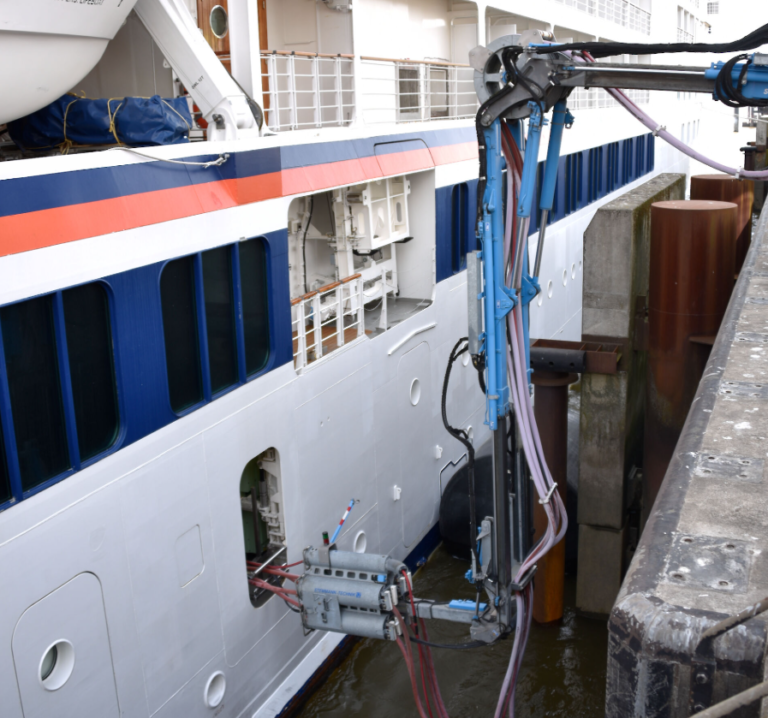The Port of Hamburg Takes a Decisive Step Towards Decarbonization
From 2027, the Port of Hamburg will require all shore power-capable cruise vessels to plug in while docked, marking a major step in the port’s decarbonization efforts.
According to the port’s officials, all cruise terminals are to be equipped with shore power facilities from 2026. Shore power connection is already available at the Altona and Steinwerder cruise terminals, while from next year, the new HafenCity terminal will follow suit as its connection is scheduled for installation and trials during the year.
As disclosed, to use shore power, the Port of Hamburg will mandate each ship to be individually certified and outfitted with the necessary onboard systems.
Leading the Way in Sustainable Maritime Practices
As a result of these intensified infrastructural developments, Hamburg is set to position itself four years ahead of the EU-wide Alternative Fuels Infrastructure Regulation (AFIR) regulation coming into force in 2030.
The AFIR—which works hand in hand with the FuelEU Maritime legislation and the Trans-European Transport Network (TEN-T)—will require 90% of container and passenger vessels to connect to the electricity grid while docked to cut down on emissions. The initiative is part of broader efforts to decarbonize the maritime sector and improve air quality in port cities.
Per the Port of Hamburg, which is considered the first in Europe to offer shore power connection for cruise ships, the use of this technology is presently being expanded further in collaboration with maritime transport partners and port customers, particularly cruise operators.
Collaborating for a Greener Future
For instance, the Hamburg Port Authority (HPA) has wrapped up agreements with operators like Switzerland’s heavyweight Mediterranean Shipping Company (MSC) and its arm MSC Cruises, which inked a deal with the port in June 2024. Other operators such as AIDA Cruises, TUI Cruises, Phoenix Reisen, Norwegian Cruise Line, and Fred Olsen are also onboard the initiative.

